
10 Vita Localizations That Should Have Happened - Article
by Adam Cartwright , posted on 21 August 2017 / 11,311 ViewsAt times I find myself thinking Vita has been far better supported than it should’ve been based on sales – there are some localized games I still can’t believe we got in the west at all. The latter part of the Vita’s lifespan has been given a strong pulse thanks to incredible efforts by a number of different publishers to bring titles across, yet there are still a number of games which have slipped through the cracks for various reasons. And in many cases it’s a real shame, because most of these games look absolutely stunning.
In this article, I’ll be looking at a number of these titles – examining what they are, why I think they should’ve come west, and various suggestions for why they didn’t.
Please note – the article is only based on games where I think the window of opportunity for localization has closed at the time of publishing. There are many titles on the cusp of being included in this list that I still think have a small shot at being localized, which is why I haven't included them for now.
Ciel Nosurge
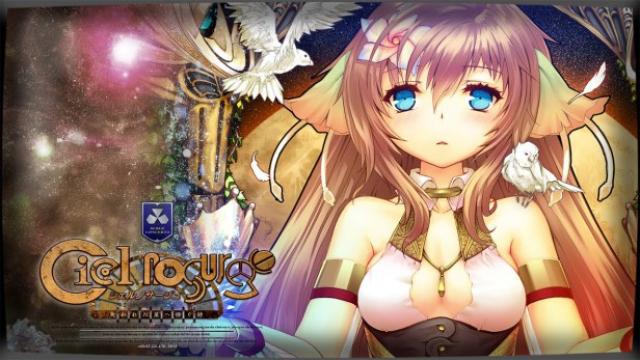
The visual novel prequel to Gust’s space opera JRPG Ar Nosurge, Ciel was released as an episodic title on the PlayStation Vita beginning in 2012 and spanning through to 2014. The game saw us interacting with Ion, a girl who lost her memories which we gradually helped rebuild over the course of the story, telling of the devastating events that led to her being trapped in another dimension.
Ciel Nosurge is such an interesting beast because of the way it is delivered. While the majority of the title is in visual novel format, there are also life simulation sections that take place in real-time, meaning you can often come across Ion sleeping or doing various different activities throughout the day. Your PlayStation Vita is treated as a terminal – a literal connection to Ion that she is viewing on one side and you on the other, which creates some interesting fourth-wall breaking moments throughout the story.
This daily interaction allows you to create an emotional attachment with Ion, meaning that as you discover more of her plight in getting to this point it’ll have much greater meaning.
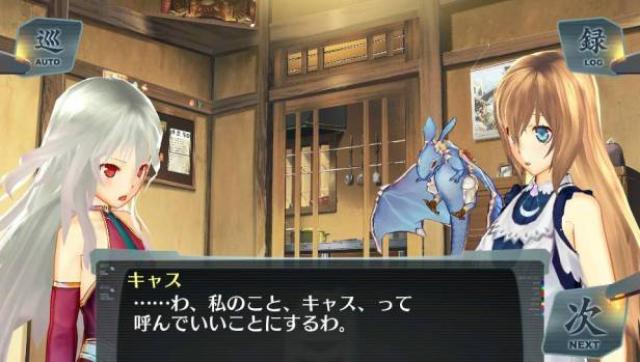
But the visual novel sections are the star of the show as the story told is just phenomenal. I read it through a beautifully made fan-translation-guide that provided me with enough insight that I really felt part of the world of Ra Ciela - a world which faces almost certain destruction at the hands of an ever-expanding sun.
Given that Ar Nosurge came west, it seems a crime not to have the incredible prequel available to read, but here we are. Again, Vita’s struggles in the west surely had a part to play but there was also another factor here – Gust’s acquisition by Koei Tecmo. Ciel was the team’s first game following the buyout and likely damaged a long-standing relationship with Nippon Ichi Software America to bring their titles to the west. With a larger corporation like Koei Tecmo calling the shots, a niche visual-novel hybrid stood less of a chance of coming overseas.
But the game’s bizarre structuring may have also had a part to play, with it requiring an online connection to play until a specifically made offline version was released in October 2014 (after which hype for the title had long since died down). Prior to that, DLC was being released regularly to expand the story, making it a gigantic undertaking for a localization team.
Hero Must Die
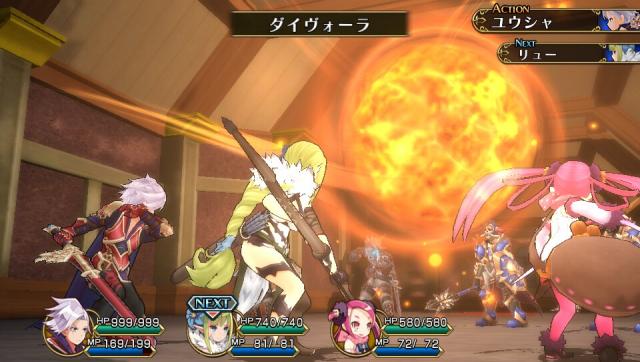
The Vita has been home to a number of ports and remakes of mobile games over the years, ranging from Chaos Rings to Oceanhorn, but none have been quite like Hero Must Die. Originally a 2D RPG with music from SaGa veteran Kenji Ito, the dedicated handheld version re-imagined the title in 3D and was brought across by Nippon Ichi Software.
However, the most interesting thing about it was the premise of the game itself. Hero Must Die pits you as a nameless hero who has slain the final boss - only to be killed himself immediately afterwards. He's given an extra five days of life thanks to a benevolent angel to tie up any loose ends in the world, including with the party members who accompanied him on the journey. Depending on your actions during these five days, different people will attend your funeral, encouraging multiple playthroughs in order to discover different endings.
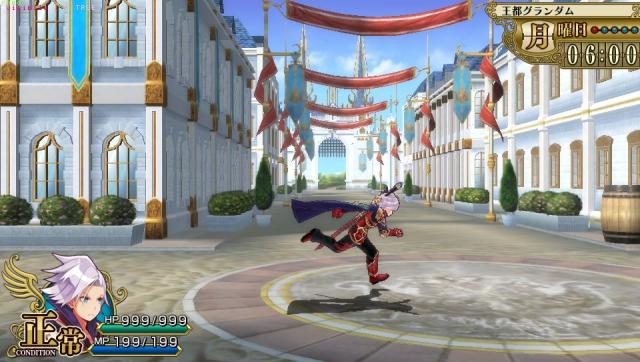
When this is combined with a fun turn-based combat system in the style of the Atelier games (including a mechanic where the hero gets weaker as the game goes on due to his impending death), as well as some side-scrolling dungeon crawling in the vein of Exist Archive, then you have a game that I personally was very interested in.
Yet it's now been more than a year since the game released in Japan and we have no word on whether it will come west. As for why - there's no simple reason to explain this one, other than perhaps that Nippon Ichi Software America have their hands too full with other projects to pick it up. If you check out my article about them, you'll notice that 2017 is probably their busiest year ever, and that's just on the Vita alone. As such, some games are bound to slip through the cracks, I'm just incredibly disappointed it had to be this one.
Koei Tecmo's otome
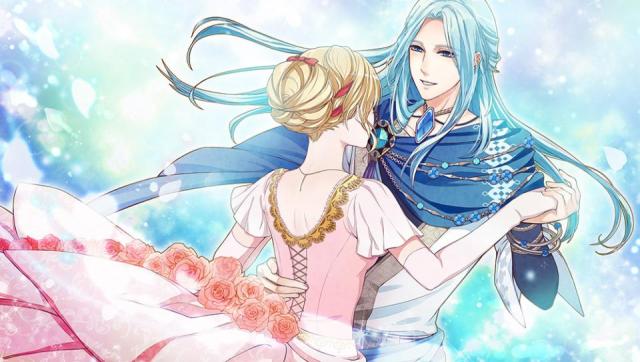
In the past I've spoken about how I'd like more otome games to be localized for Vita, and Aksys very much answered this call, recently announcing a spree of games for 2018 and beyond. Yet they all shared one thing in common - all were published in Japan under Idea Factory's 'Otomate' label, and they tend to follow a very set formula with their otome releases. Yet there's another very prominent developer of the genre in Japan - Ruby Party - who sadly have seen none of their games released in the west despite their reported high quality.
They're the company who effectively birthed the genre with the original Angelique - about the queen of the cosmos - a game that received a brilliant remake on Vita in Angelique Retour. Since then, they've created numerous other successful franchises under their Neoromance label that all took the leap from PSP to Vita in 2014, which was one of the major announcements of Sony's TGS conference that year.
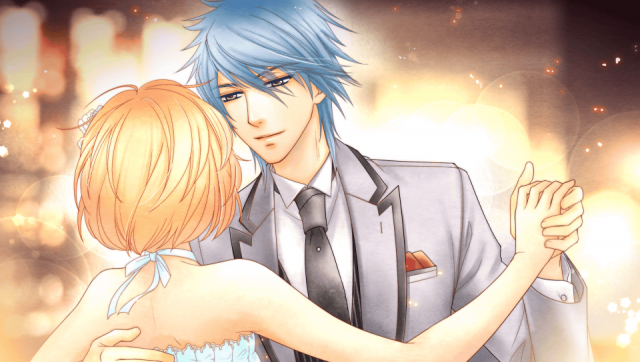
Examples include Harukana Toki no Naka de, involving a group of friends who time travel to Kyoto in the past to fight oni; and La Corda d'Oro, which follows a high school girl with a magical violin who slowly bonds with the classmates around her. Their games are unique among otome titles as they aren't solely visual novels - Harukana features turn-based RPG combat, while La Corda d'Oro features stat-raising and life sim elements. Both have done well enough to receive ports of fan-favourite releases on Vita, alongside brand new titles designed specifically for the hardware.
Why these franchises remain Japan-only is fairly easy to explain and it's difficult to hold against publisher Koei Tecmo. Visual novels as a genre still remain relatively niche in the west, despite breakout successes like DanganRonpa and Steins;Gate, and otome is an even more niche sub-genre within this. As such, it's likely just too risky a venture for Ruby Party's parent company Koei Tecmo, and other publishers probably don't have easy access to the games because of the ownership issue. Thankfully there appears to be a small armada of otome fans within Aksys who seem intent on keeping the games flowing to the west, so maybe one day they'll get the opportunity to take a stab at a Neoromance game.
Legend of Heroes: Ao/Zero no Kiseki
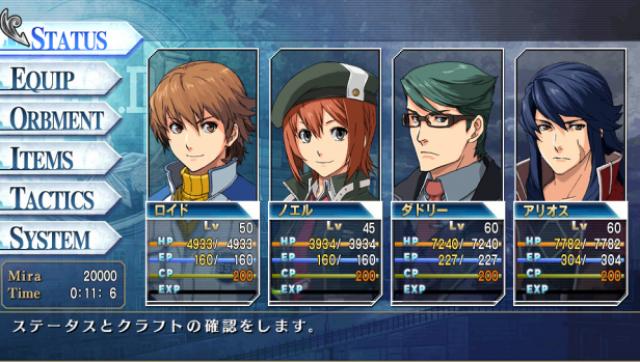
The history of Legend of Heroes in the west has been a strange one. The first in the original trilogy, Trails in the Sky, reached western shores in 2011 on PSP, with a promise of the follow up releasing soon after. Yet it would take 4 years for this promise to actually come true, with the series surviving in the west thanks to XSEED’s tenacity and a strong showing on Steam. Now, in 2017, we’ve just caught up with the two most recent games (the Trails of Cold Steel sub-series) and have the final entry in the Sky series as a PC-only release, but sadly two of the most well-regarded entries that form part of the ‘Crossbell’ arc have so far not been released in the west.
Legend of Heroes is a long-running, narrative-heavy, traditional turn-based RPG series from masters of the genre - Falcom. They’re well known for containing an exorbitant amount of text to translate (the first title alone had 1.5 million characters) and having NPCs with more character and plot development than main characters have in the majority of their contemporaries. Each sub-series follows a different nation within the world and all the stories tie together into an over-arching plot, something rather unique to the genre.
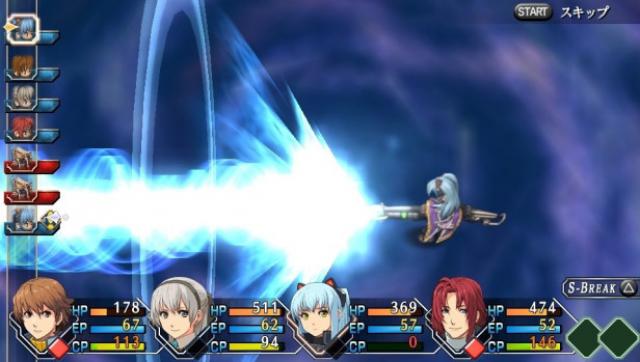
The Vita has always been a great fit with JRPGs (particularly of a turn-based nature) and it seems a shame that two of the fan-favourite entries may not reach these shores. This is likely because of the licencing issues involved – the Vita versions aren’t developed by Falcom, but rather ports done by Kadokawa Games & Chara-Ani, meaning whoever picks them up has multiple companies to negotiate with. But they’re also massive undertakings, because as previously mentioned, the amount of text to translate is extreme.
Thankfully there is still a chance of getting these games in the west if XSEED manages to snag PC ports of the titles (just like they’ve been doing with the Trails in the Sky sub-series), which is something, although getting the Vita games in the west while they were still current would’ve been a more desirable result.
Net High
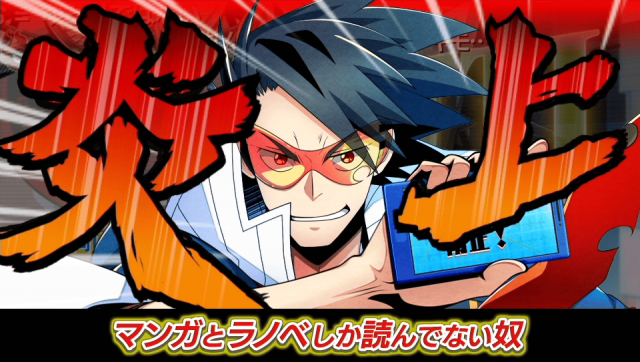
The Vita has proven itself to be a great home for hybrid visual novels - those with light gameplay elements mixed in with the storytelling, such as DanganRonpa and Root Letter. So when Marvelous announced they were bringing Net High to the handheld - a visual novel that had you exposing the lies people tell over the internet using investigative and class trial-esque elements - it seemed like the perfect game for the audience already there.
Sadly, Japanese sales were extremely weak, with less than 3k copies sold in the first week despite the compelling premise, although critical and fan reception to the title seemed largely positive, which suggests poor sales were mostly due to a lack of marketing and getting the word across about the game. Given strong word-of-mouth, combined with the fact that it released during a time when more and more Japanese games were turning a profit in the west despite weak Japanese sales (see Lost Dimension and Root Letter), there seemed to be at least a glimmer of hope it would reach overseas shores.
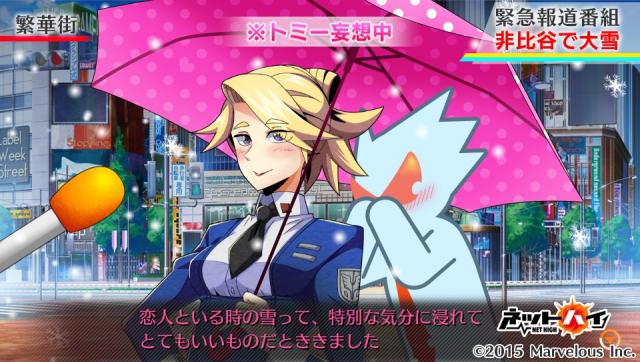
While whacky, the game's focus on elements of internet culture was something that exists across borders. The idea of internet celebrities, preaching to millions of instagram followers about their lifestyles and the insecurities which actually plague them in real life would surely have hit a note with western audiences as much as it did in the east. Games like DanganRonpa have shown that a quirky Japanese-style game can still be very appealing in the west as long as the core game is up to snuff.
The hope for an overseas release was recently extinguished when XSEED announced the title wouldn't be released by them at all due to cultural difficulties in translating some of the text. While it would undoubtedly be one of the more challenging localizations the team has done (which makes it a risky decision at this late stage in the Vita's life), if that sounds like an excuse... that's likely because it is. Net High falls into the same camp as other Marvelous titles including Luminous Arc - games made exclusively for Vita after XSEED had stopped localizing games for the console. While other companies like PQube and Aksys managed to step in and grab Tokyo Xanadu and Valkyrie Drive, this game hasn't been so lucky, possibly dooming it to the depths of Japanese obscurity forever.
Phantasy Star Nova/Online 2
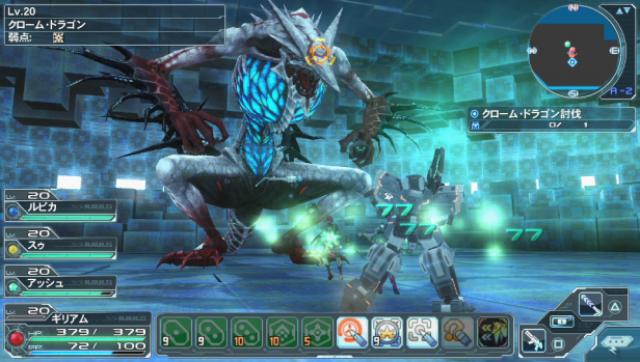
As a sequel to console gaming’s first ever MMORPG, and based on the storied Phantasy Star IP, you’d think Phantasy Star Online 2 would sell based on pedigree alone. The game was already available on PC at the time of its Vita launch and would’ve been quite a novelty being an MMO on a handheld. Despite seeming a reality, with SEGA indicating they would bring the game across in 2013, it wasn’t to be – all versions have apparently been placed on indefinite hold.
PSO2 mixes up the action-RPG gameplay of the first game with new abilities involving photons and would certainly seem a good fit on the console. It helps that rather than being a full, sprawling MMO (which might cause some difficulties in performance), PSO is smartly designed to be compartmentalized, meaning you have a hub world to interact with other players but go to specific zones with small teams to undertake missions.
Presumably, the game didn’t come across due to worries about how much money it’d make compared to the amount of money it’d cost to run (keeping up servers to play online costs a lot more than simply localizing and releasing a game). That doesn’t really explain the lack of a PC version, but here we are.
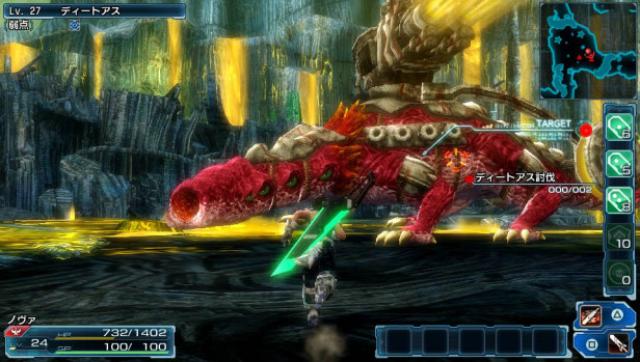
So it came as a relief when SEGA announced Phantasy Star Nova in Japan, a single-player game based on the PSO2 universe that seemed a shoe-in to finally give us a way to dip into this universe in the west. Despite being helmed by Tri-Ace, a well-regarded developer known for the Star Ocean and Valkyrie Profile series, this game never materialized overseas either despite being a much easier sell.
Nova takes a page from the Monster Hunter design of having a group of characters team up to take on massive monsters, designed around local/online co-operative play (which is particularly popular through ad-hoc in Japan). The game looks gorgeous on the Vita and has a higher level of production values than the majority of Japanese handheld games, so why haven’t can’t we play it in English?
Realistically, the fact the game is Vita-exclusive combined with poor hardware sales in the west likely contributed to us not getting this title. It certainly seems strange in a world where we got Dengeki Bunko: Fighting Climax released in the USA, but that game also had a PS3 version to bring across. SEGA have been rather erratic with localizations in general and sadly Phantasy Star doesn’t seem to be an IP they want to re-establish overseas.
SaGa Scarlet Grace
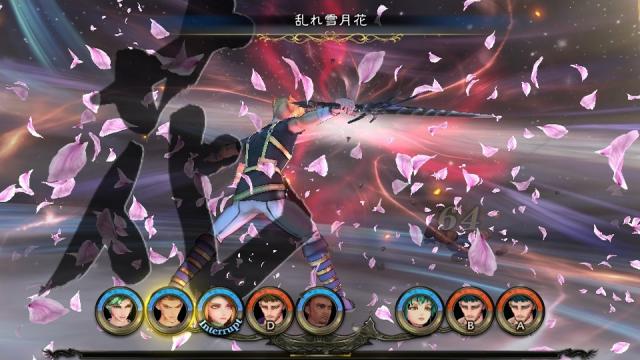
In 2014, it was announced that Square's legendary non-traditional RPG franchise SaGa - which started life on the Game Boy as Final Fantasy Legend and lived through the SNES as Romancing SaGa, PS1 as SaGa Frontier, and the PS2 as Unlimited SaGa - would be receiving an exclusive Vita entry. That dream wasn't realised until December of 2016 when SaGa Scarlet Grace finally released, but it has become pretty clear that the game won't be receiving a western release - at least, not on the PlayStation Vita.
Following four very different heroes as they adventure through the land of the Star Gods, Scarlet Grace provided a free-form design that assigns you a character based on your choices to a number of questions, then sends you into the world to explore it and discover various events at your leisure. This sets it apart from the vast library of JRPGs the Vita has to offer, and thanks to the addictive turn-based combat, fantastic character development, and plentiful exploration, fans found lots to love in the game.
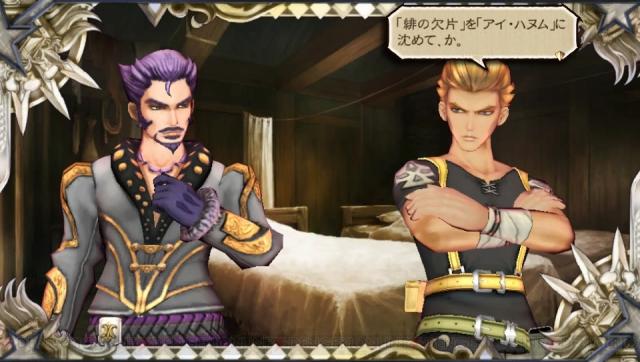
In Japan, the title received rave reviews from fans who praised the fact it stuck to the traditional open-ended design of previous entries while incorporating a fantastically addictive battle system (I've even seen posts on certain forums describing it as "like crack"). The quality sadly wasn't reflected in sales, as the game opened to a decent 64k, putting it in the upper tier of Vita games, but far below the IP's historic selling power when it was pushing one million copies sold during the PS1 days.
As for why the game never came to the west, unfortunately the reasons are plentiful. For starters, it released in December of 2016 in Japan, during which time the console was already winding down even in that region, let alone in the west where it had effectively been discontinued. Compounding this is the fact that the SaGa franchise has nearly always been heavily skewed towards domestic sales - and with an already low return expected overseas, the Vita's poor userbase in the west would make it a difficult proposition for Square Enix. There is a chance that the game might make it across one day, but I'm not confident it will be on Vita - more likely as a port to PS4/Switch, or even on mobile, which would be a crying shame as it would've been a nice final exclusive title to send the handheld out in a blaze of glory.
Tales of Innocence R
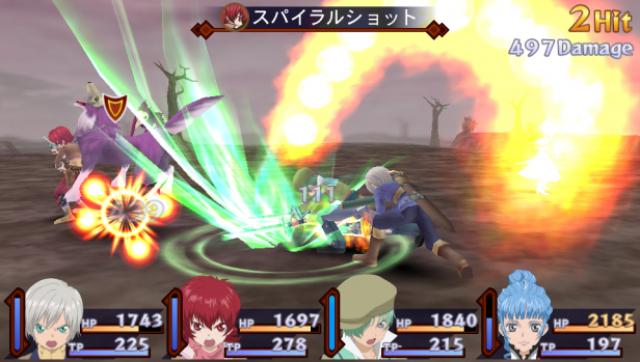
One of the earliest JRPGs to arrive on Vita in January 2012 in Japan, Tales of Innocence R is a remake of a DS game that's part of the long-running Tales of series of action-RPGs. The franchise has always managed to survive thanks to dedicated fans who appreciate the familiar elements (Tales is a little like comfort food in that you know what you’re getting and it always delivers).
The Vita version of Innocence remakes the whole title, introducing new characters, gameplay mechanics, and story content. It’s actually the first mainline title to be made by a team other than Tales Studio, instead being handled by Alfa System of Oreshika: Tainted Bloodlines fame (although the remake was handled by 7th Chord who also worked on the remake of Hearts R).
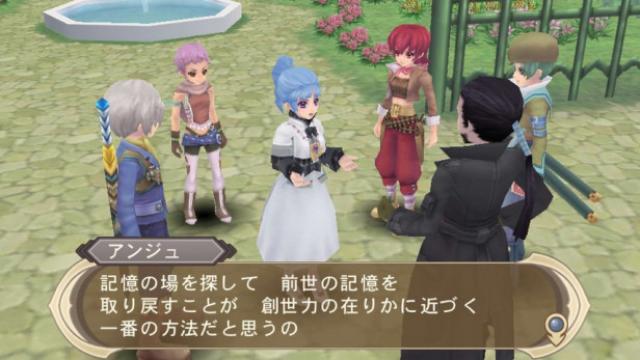
So why didn’t we get this title in the west? Honestly, your guess is as good as mine. It came along early enough in the Vita’s life that it could’ve appealed to many early adopters, particularly in the wake left by Persona 4 Golden when there was an absence of other JRPGs on the handheld. As it is a Bandai-Namco title, it likely boils down to management – under the current team I think there’s a high probability we’d have gotten this title, seeing how games like Little Witch Academia and Gundam Versus are coming westward, but the setup at the time just wasn’t interested in taking risks on smaller games.
There was probably a small window of opportunity to revisit this game when Tales of Hearts R was released in the west, but without that game selling gangbusters and the Vita’s ever-dwindling hardware sales, this window seems to have truly closed.
Ukiyo no Roushi
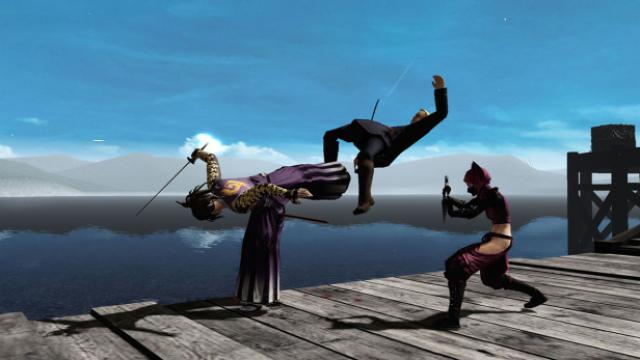
This has long been a personal favourite of mine that I’ve brought up time and time again on various localization company request forums, but a year and a half later I gave up and imported the title as it seems impossible for the game to come across at this point.
The game’s pedigree is impressive – it’s an open-world samurai title (initially seen as a spiritual successor to Way of the Samurai) developed by the team who made DanganRonpa and features murder-mystery elements alongside samurai sword-fighting. It features a special Ukiyo-engine that allows you to capture beautifully-coloured screenshots of your battles, an in-depth weapon forging system to allow you to custom your blade, and a large world map for you to explore with plenty of side missions to undertake, setting it aside from the vast majority of other Vita titles – what’s not to like?
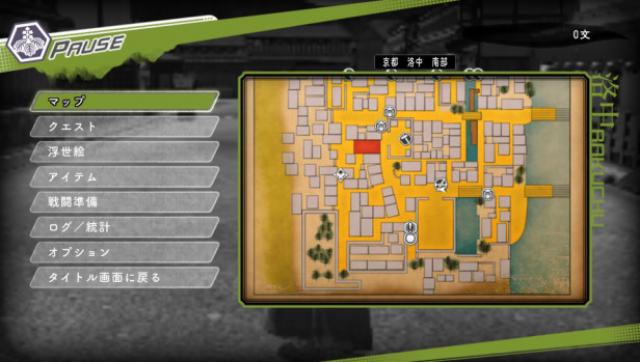
Sadly, for whatever reason, the usual studios just weren’t interested in the title when it released. It probably didn’t help that it was tied to a PS3 game named Ukiyo no Shishi, with each title showing opposite viewpoints of the same conflict, nor would it have been too appealing that it’s set during the Bakumatsu period of Japanese history, which is a great era, but not one that’s too well known in the west. Despite all of this, I thought the Way of the Samurai's appeal would’ve gotten it across, but it seems that’s not the case.
What’s interesting is that Spike Chunsoft (the game’s Japanese publisher) now have an overseas publishing arm of their own (recently working on Mystery Chronicle: One Way Heroics) so if this game had just released a year or so later, things may have been very different.
Uppers
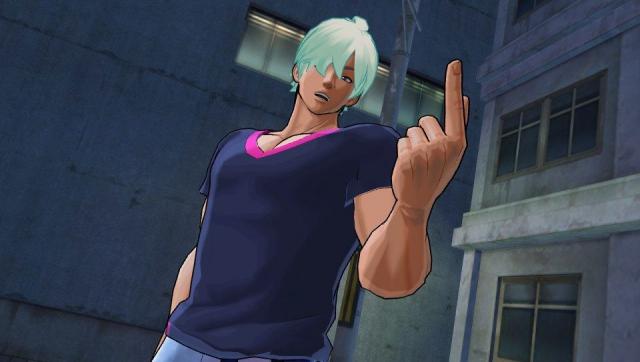
A game that at one time I thought was a certainty to come to the west, Takai's deliquent brawler looks increasingly unlikely to hit these shores and marks the second Marvelous title on this list that appears to have been skipped by XSEED - a worrying trend given their previous love for the platform in the early days.
Broadly, Uppers is a street brawler that sees you fighting as various delinquents in order to impress 'queens', which means smashing through waves of foes and making use of environmental hazards to finish them in flashy ways. Things are a little different than the creator's other series Senran Kagura, however, as the focus on hand-to-hand combat means the end result is something more akin to Kenka Bancho or Yakuza - series which are sadly missing from Vita, making Uppers an easy choice to fill that gap in the market (coincidentally, the game was actually developed by the studio behind Kenka Bancho, making the title appear to be something of a spiritual successor).
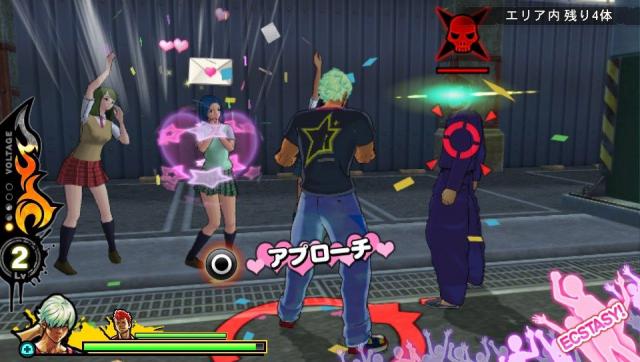
Given the positive reception seen towards the game from importers like Super Best Friends - who enjoyed the over-the-top zany action - it seemed a safe bet that the game would find a niche but dedicated audience in the west, in particular if the title was ported to Steam, where similar releases have done pretty well (but thanks to brawlers already available on Vita, it should be popular there too).
Why the game didn't come west seems to again relate to XSEED being the western publisher for Marvelous titles, who are now choosing to skip any Vita-only game. Uppers is a game from a decently-known producer, with no text issues and a strong potential audience, making it a bizarre pick to skip. Lukewarm sales in Japan probably didn't help matters, but this hasn't stopped similar titles achieving much greater success in the west (things like Disgaea 5 Complete, God Wars, and Root Letter spring to mind). Had it also released on PS4 or Switch, things may have been very different for this title; as it stands, the only way to truly enjoy it on western shores is through an import guide.
Conclusion
We’re living in a world where localizations are far more commonplace now than they’ve ever been before. Compared to the PS1 era, 2017 is a fantasy land where every major game sees a western release. I can’t help but feel that Vita has been somewhat of a catalyst for this too – companies like Aksys, Idea Factory International, and Nippon Ichi Software America stepped in when Sony had abandoned the platform and provided a steady stream of releases which was rewarded with plentiful sales from consumers in love with the handheld. This in turn led to more confidence in taking a gamble on riskier genres. The console has gotten so many more releases than I ever thought it would to the point it was much more difficult to put together this list than the previous one.
Yet in spite of this it’s difficult not to lament the games which didn’t make it over, especially if you follow Japanese gaming news closely. It’s such a shame that many of them didn’t come to fruition, but sadly that’s more to do with the state of Vita at this stage in its life than anything else. Had Sony supported it better it may be a different story – then again, with better support the localization scene on the handheld may not have taken off in the way it did anyway, plugging gaps in release schedules with brilliant new titles.
Still, the handheld has been blessed by a lifestream of localization releases throughout its life that have helped keep me and like-minded gamers glued to the platform for the past six years. Plus, a number of these titles are easily importable these days thanks to the advent of Google Translate and some brilliant import guides over at GameFAQs – meaning if you’re at all interested in Japanese games, there’s never been a better time to jump into Vita.
More Articles
Feel like you were kinda kind to XSeed in this. They've certainly merited a far harsher reception than they get imo.
Haha, I've got plenty to say about XSEED, but I thought this probably wasn't the right place for it :P
Ciel nosourge I don't think would work in the west. There is too big a mentality gap - people here, I assume at least, would not get the same level of emotional attachment as would happen in Japan with such a game.... I will get it eventually though. Gonna start studying Japanese in a year or two.
Some of the JRPG's... yeah. Localization would definitely make sense. E.G Tales or The Legend of Heroes.
I wish I got into the Vita earlier. Making up for it now!
Nicely done. There's several games here I didn't even know about, and every game on this list looks interesting.
These titles can all come to Switch now! HUEHUEHUEHUEHUE!!!
Most of these don't need to be localized and good they didn't.
I have are nosurge plus but ciel is just way too much and should never have been made so slack. Also alot of those aren't worth noting. But some I 100 percent agree with. Like Tales, Trails, NMH and phantasy star
I absolutely agree. This game would have been fantastic to celebrate the anniversary. An upgraded version for Vita/PS4 (even 3DS) would have been fantastic.








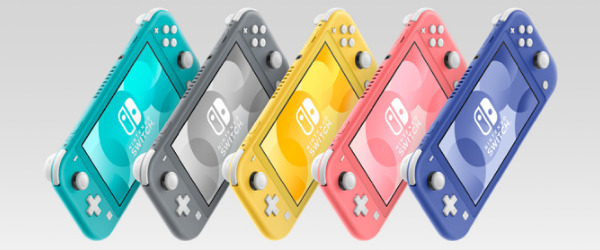
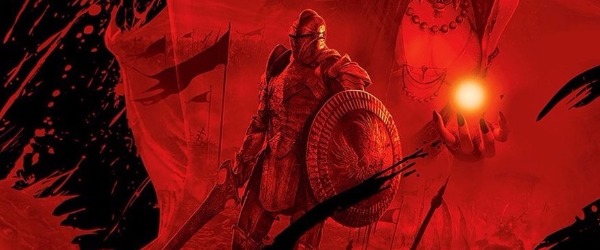
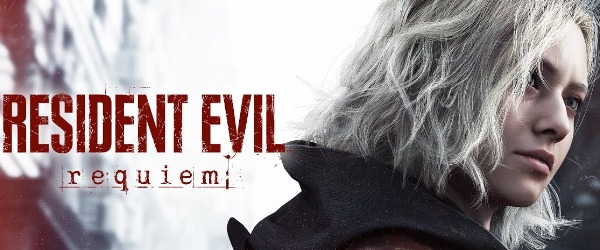











 Essay Pro
Essay Pro